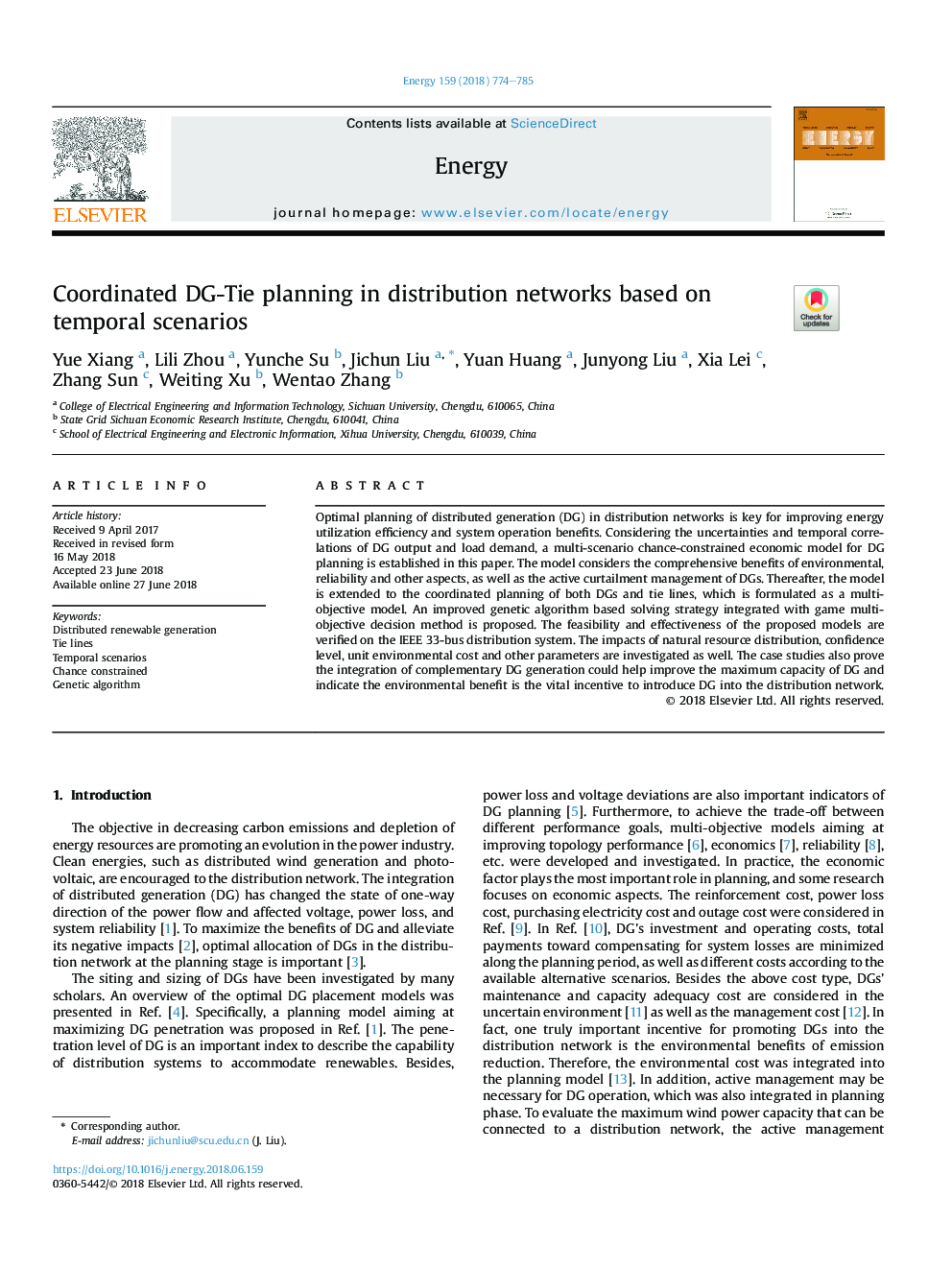| Article ID | Journal | Published Year | Pages | File Type |
|---|---|---|---|---|
| 8071092 | Energy | 2018 | 12 Pages |
Abstract
Optimal planning of distributed generation (DG) in distribution networks is key for improving energy utilization efficiency and system operation benefits. Considering the uncertainties and temporal correlations of DG output and load demand, a multi-scenario chance-constrained economic model for DG planning is established in this paper. The model considers the comprehensive benefits of environmental, reliability and other aspects, as well as the active curtailment management of DGs. Thereafter, the model is extended to the coordinated planning of both DGs and tie lines, which is formulated as a multi-objective model. An improved genetic algorithm based solving strategy integrated with game multi-objective decision method is proposed. The feasibility and effectiveness of the proposed models are verified on the IEEE 33-bus distribution system. The impacts of natural resource distribution, confidence level, unit environmental cost and other parameters are investigated as well. The case studies also prove the integration of complementary DG generation could help improve the maximum capacity of DG and indicate the environmental benefit is the vital incentive to introduce DG into the distribution network.
Related Topics
Physical Sciences and Engineering
Energy
Energy (General)
Authors
Yue Xiang, Lili Zhou, Yunche Su, Jichun Liu, Yuan Huang, Junyong Liu, Xia Lei, Zhang Sun, Weiting Xu, Wentao Zhang,
